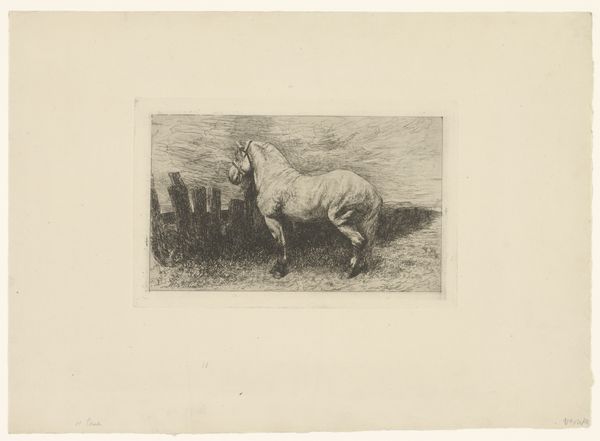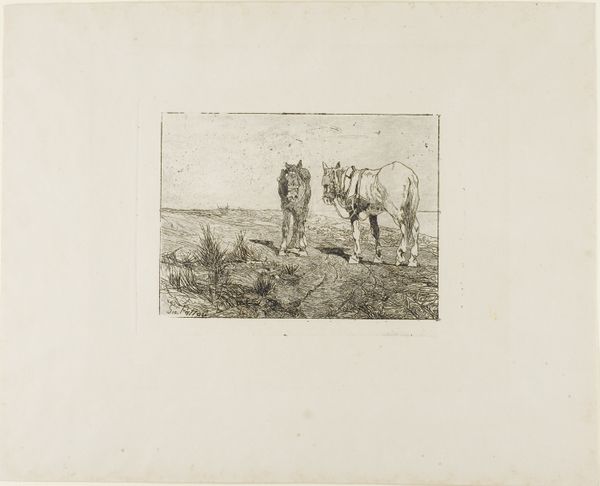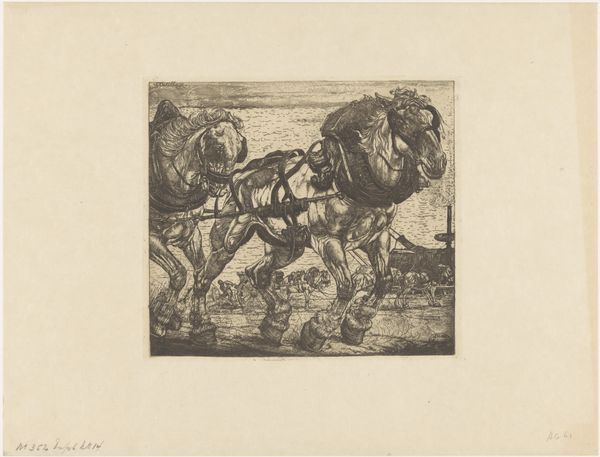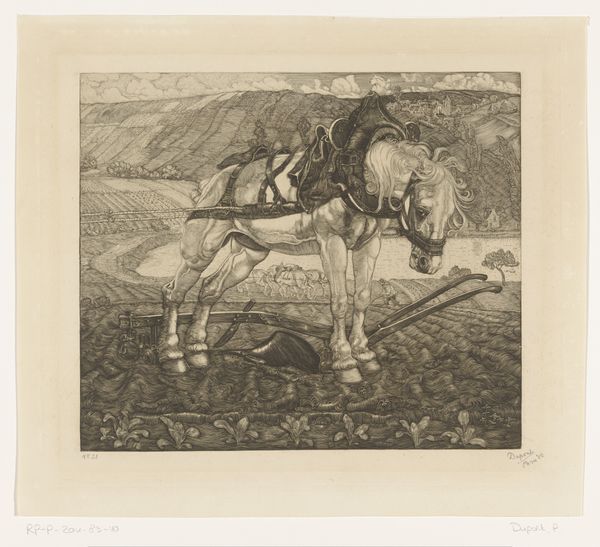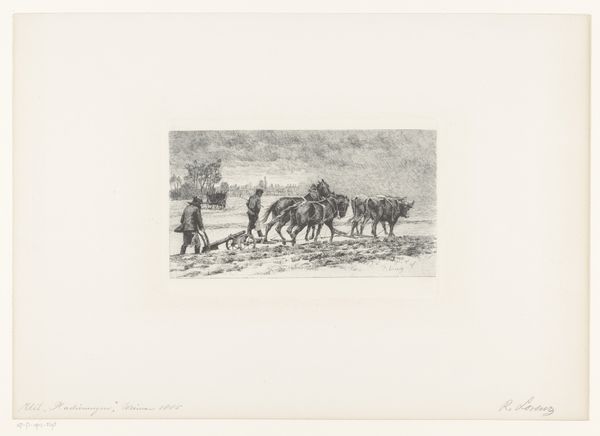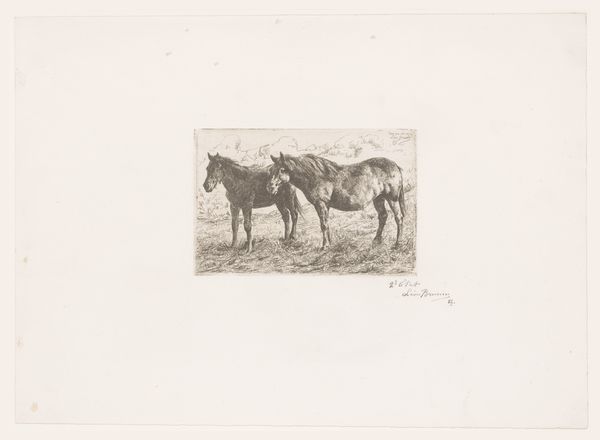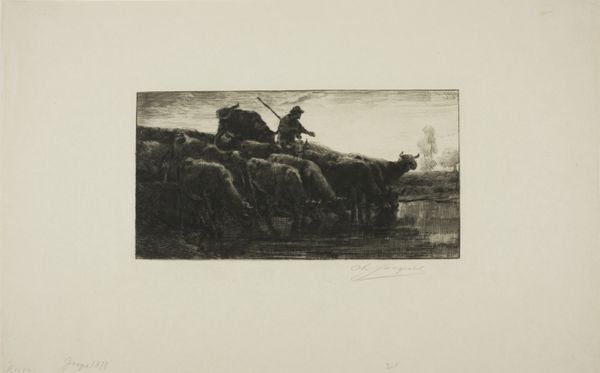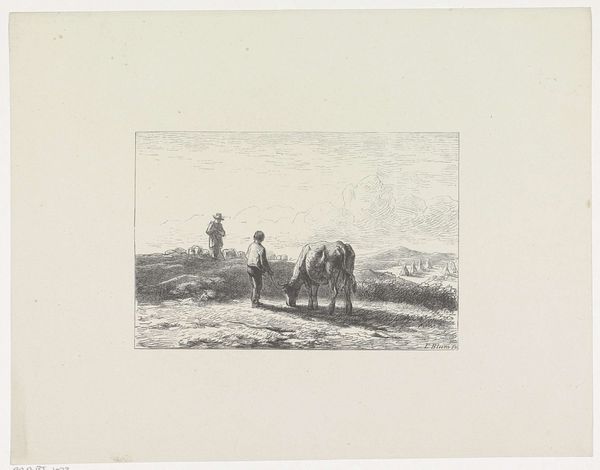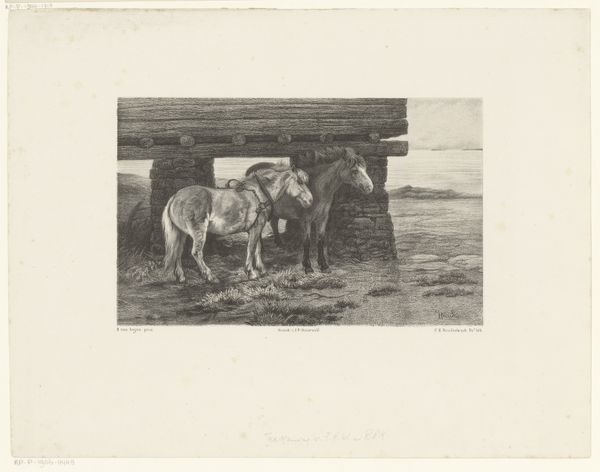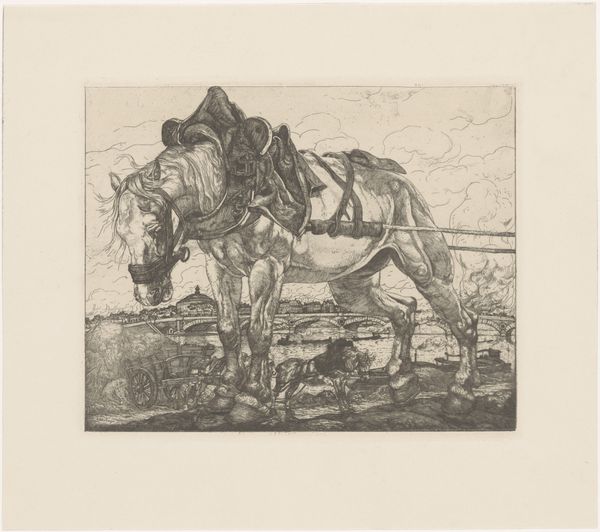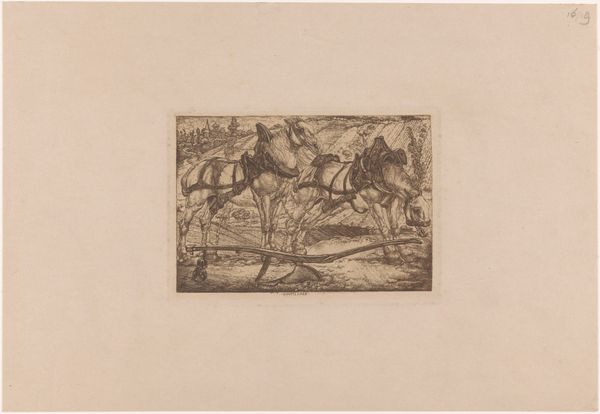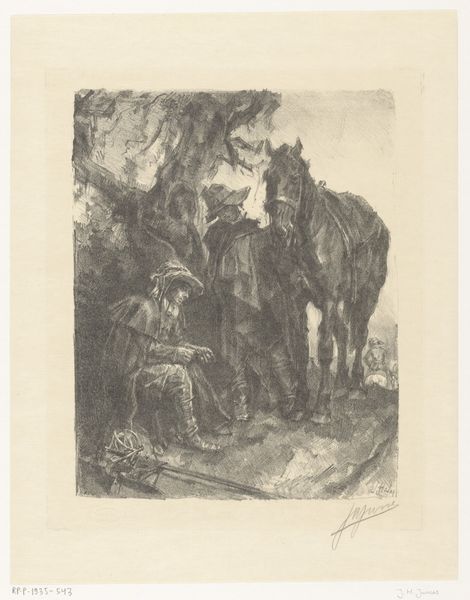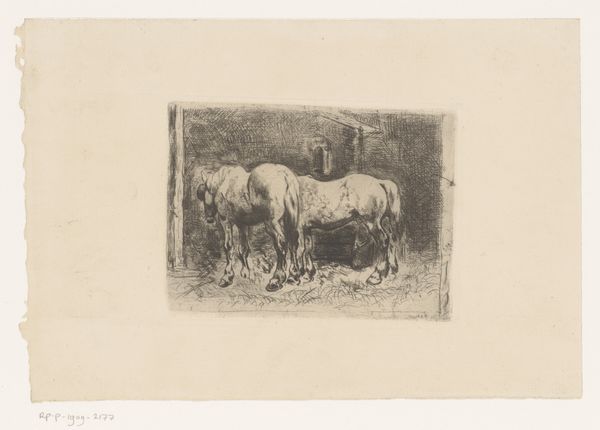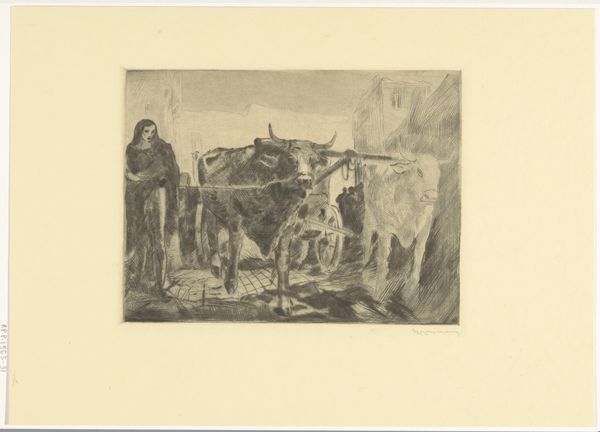
etching
etching
landscape
horse
realism
Dimensions: height 239 mm, width 322 mm
Copyright: Rijks Museum: Open Domain
Curator: Ah, yes, this etching is entitled "Landscape with Horse and Three Cows," and it's attributed to Karel Theodoor Hippert. Although its exact date remains a bit uncertain, we place it somewhere between 1849 and 1910. It's quite a striking piece. Editor: It has this feeling… melancholy? A grayness permeates everything. That white horse leaning against the fence, almost sighing. You feel it? It's the end of something. The cows just add to that vibe of pastoral decline. Curator: That reading resonates. Consider the historical context—the rapid industrialization of Europe during that period. These kinds of rural scenes became not just nostalgic, but potent symbols of a way of life under threat, consciously or unconsciously preserved by artists. Editor: True! The way he uses line, too – it’s scratchy, almost nervous. Not at all idealized or smooth. I get this impression he's capturing the transient nature of rural existence rather than making it an ideal. The realism bites, it isn't a soft Realism! Curator: Hippert wasn't necessarily aligned with overt social critique; his practice centered more on representing observed realities. However, images inevitably participate in a wider dialogue. How do we see land, work, nature? He offers, even inadvertently, material for thinking through these issues. Editor: Well, whether intentional or not, that forlorn horse does haunt. Almost pleading, right? As if tethered to the fate of this very landscape! Curator: It underscores how the personal and artistic get bound up with the sociopolitical, like it or not. What starts as an act of observation evolves into something much more loaded as time goes by. Editor: A fitting example for what art does in this particular museum at this present moment. The past isn't just pretty pictures but is this space to understand and to reshape the present. Curator: Indeed. This piece serves as a point of intersection between an artist’s eye and society's shifting ground.
Comments
No comments
Be the first to comment and join the conversation on the ultimate creative platform.
